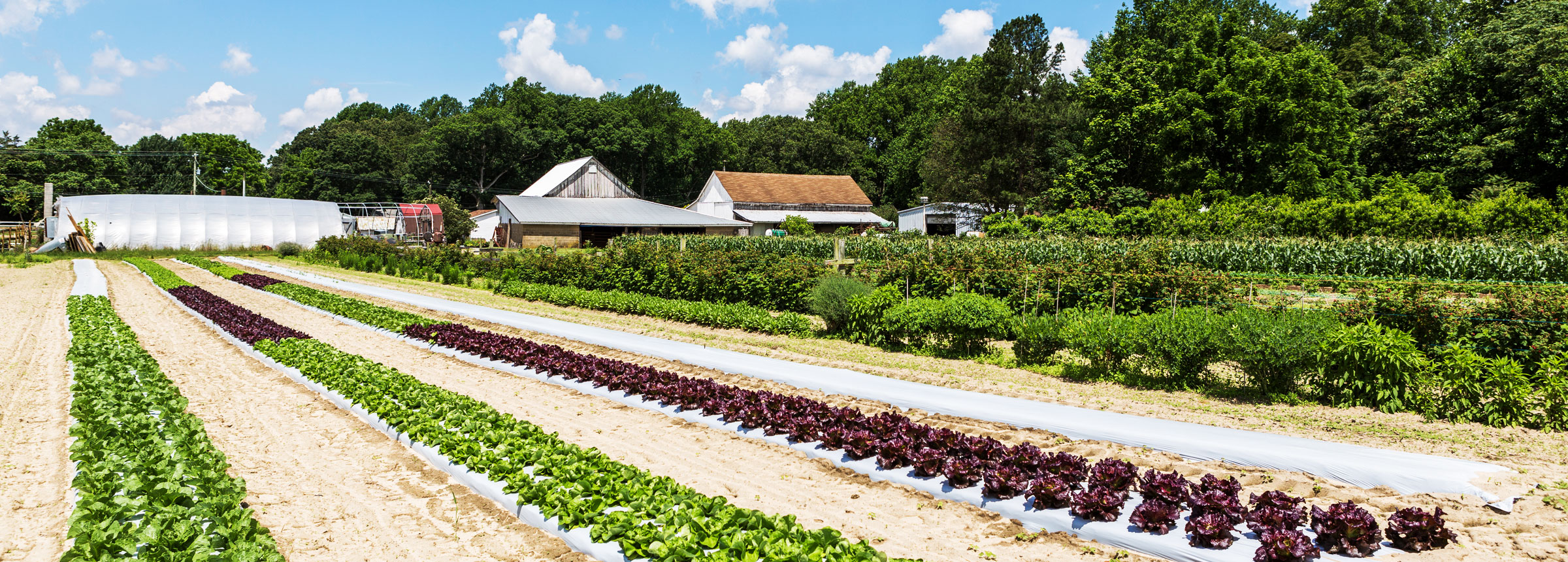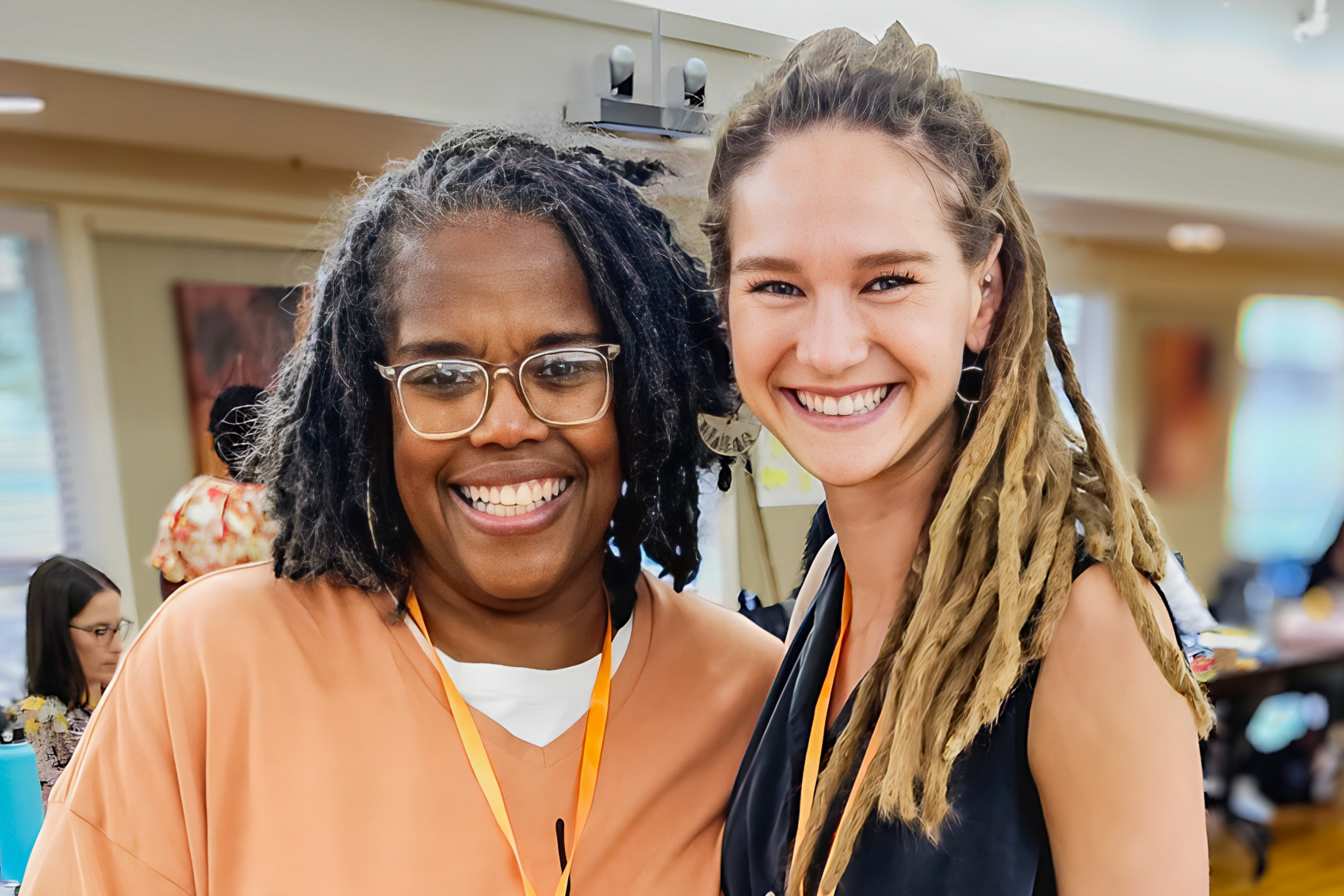
Strengthening networks and leadership for local food systems change
By Andrew Carberry, project manager, Wallace Center at Winrock International
The Wallace Center launched the inaugural Arkansas Food Systems Fellowship in 2024. The fellowship is hosted through the Wallace Center’s Food Systems Leadership Network, which connects and accelerates sustainable food systems leaders across the U.S. Its design resulted from a multi-year participatory process to identify strategies to strengthen the food systems change ecosystem in Arkansas.
This began with a partnership with Engage Arkansas − an initiative to advance civic engagement and combat social inequities − to convene farmer support providers to discuss resources and opportunities for collaboration. After landing on the fellowship model, we interviewed fellowship leaders and participants from across the country and worked with Arkansas leaders to co-design a fellowship tailored to the best practices to the unique culture, needs and history of the state.
The goals of the fellowship program were to:
- Strengthen relationships among diverse food systems leaders in Arkansas.
- Increase individual capacity through training and guidance.
- Increase collaboration among fellows with tangible, measurable outcomes.
- Highlight the ways fellows provide leadership and bring new perspectives and voices to the table.

The first cohort of 24 leaders collaborated via a kickoff call in August 2024 and later attended a two-day retreat at the Winthrop Rockefeller Institute on Petit Jean Mountain in Morrilton, Arkansas, in September. Throughout the remainder of the year, participants stayed connected through monthly virtual calls and message boards. Participants reflected on how refreshing it was to focus on working together across “silos” to solve common problems and think about how their unique gifts could serve the system.
The fellowship journey
The fellowship was designed and hosted in partnership with a steering committee whose members helped us both shape and roll it out. Committee members included Amand Philyaw Perez, associate professor with the University of Arkansas Division of Agriculture Cooperative Extension Service, Brenda Williams, Healthy Foods Coordinator with Communities Unlimited, and Gracie Gonner, founder and executive director of The Family Center, Inc. The steering committee assisted with outreach and selection of the first cohort members, guided the development of the curriculum, and provided support during the retreat.
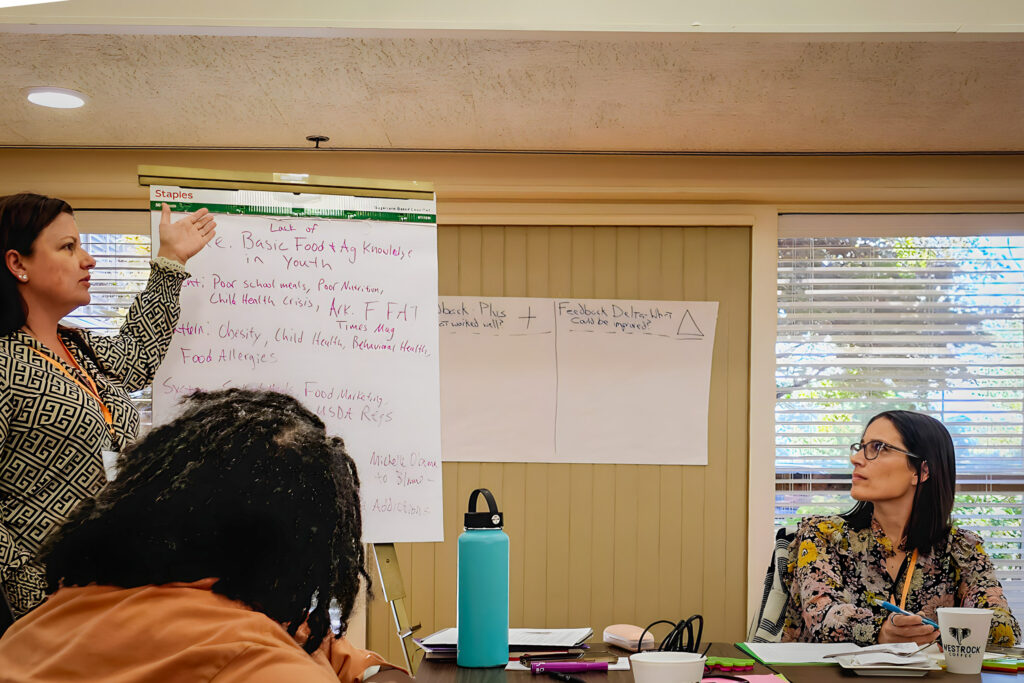
We also partnered with Tina Gilbert, founder and CEO of Next Level Training Solutions, to co-develop the curriculum and to host activities. Tina co-facilitated the retreat and all the virtual calls between fellows. The retreat focused on building connections amongst the cohort, supporting individual growth through a leadership assessment and discussion of strengths, and sharing tools for diagnosing problems in the food system at a systems level.
“The FSLN Fellowship Retreat was an empowering experience. Collaborating with other leaders and sharing our strength reminded me of what we are capable of. I think the quote I saw in the Rockefeller museum [from Winthrop Rockefeller] sums up our passion: ‘So long as thousands of our people go to bed hungry or in hopelessness every night, nobody in Arkansas, myself included, has the right to be callous or indifferent.’” − Cassie Jones, College and Community Hunger Intern, Food Bank of North Central Arkansas, 2024 Arkansas Food Systems Fellow.
The virtual calls provided skill-building opportunities for fellows and supported the overarching goals of the fellowship to strengthen leadership and catalyze collaboration among food systems leaders in Arkansas.
Our first call, with members of the National Sustainable Agriculture Coalition, provided an overview of the Farm Bill process, the difference between advocacy and lobbying, and tips for engaging policy makers and influencing policy. The coalition’s grassroots co-director, Stef Funk, offered a national perspective, and Arkansas Project Manager Jeremy Adams provided the landscape in Arkansas. The call included a panel conversation with Ron Rainey from the University of Arkansas Division of Agriculture, P.J. Haynie with Arkansas River Rice, and Mary Belle Zook with the Indigenous Food and Agriculture Initiative. Each panelist shared their policy experiences, provided information about influential players in food and farm policy, and described opportunities for collaboration on policy work.
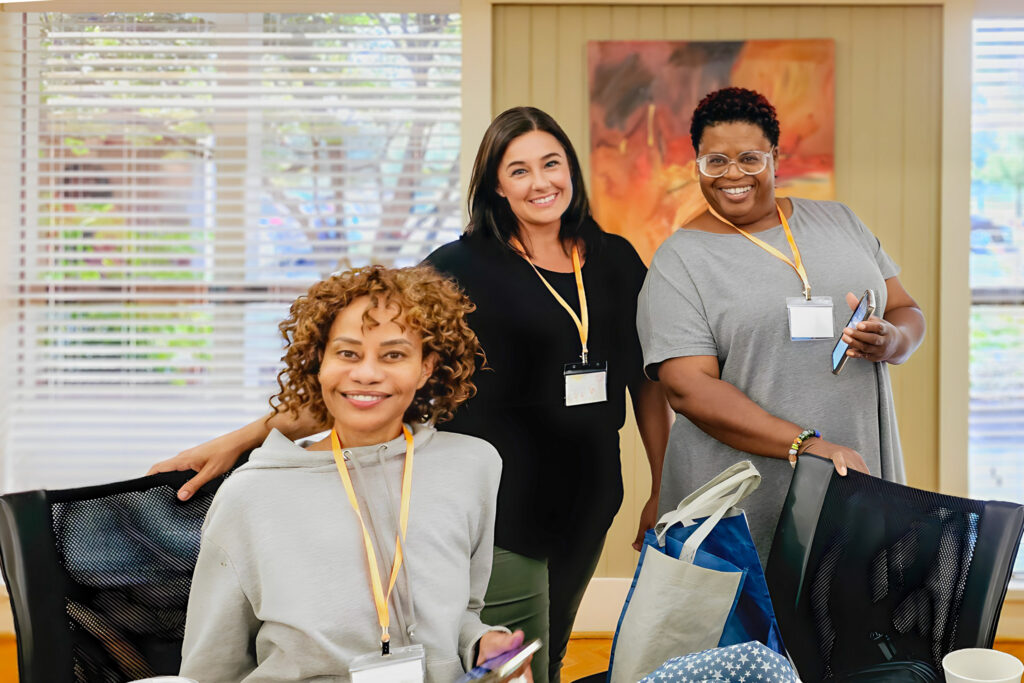
Our second call was conducted in partnership with Florence French, senior regional organizer, Southeast, with Bread For the World. This session provided perspective on historical injustices that have impacted landownership dating back to the 1860s. The discussion was especially powerful for participants from eastern Arkansas who have been most impacted by the policies examined in the session.
“Being with such a devoted and diverse group of leaders provided me with the opportunity to grow and make connections that will be with me for a lifetime.” − Tish Mindemann, project specialist, Indigenous Agriculture and Food Initiative, 2024 Arkansas Food Systems Fellow.
The November 2024 cohort call focused on grant writing and was conducted in partnership with Hunter Goodman at the University of Arkansas Cooperative Extension Service. Hunter tailored her training to fellows’ needs and covered how to include specific, measurable, achievable and time-bound goals in grant proposals, along with how to identify which funding sources fit best, partnership development, and how to construct a logic model as part of the grants development process.
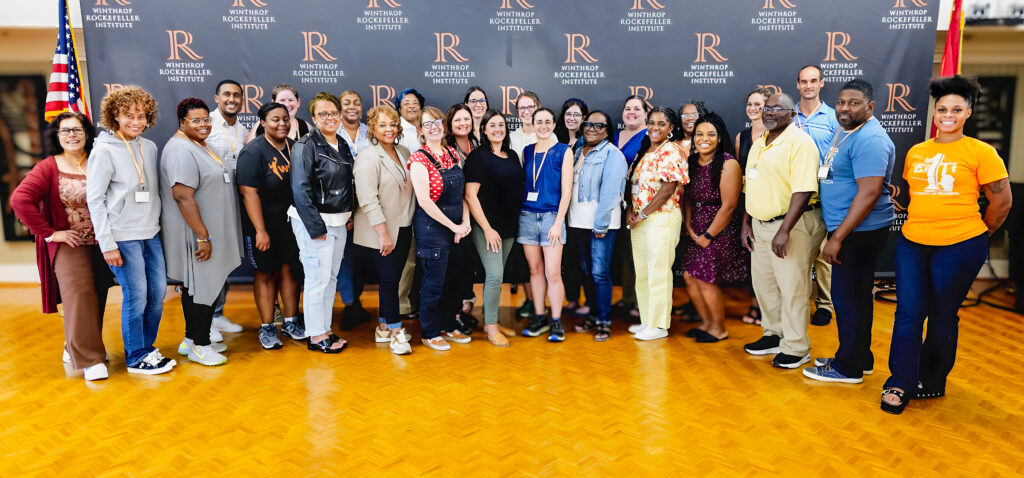
The final cohort virtual call included a presentation by Ron Rainey, assistant vice president at the University of Arkansas Division of Agriculture, and provided time for fellows to reflect on the fellowship journey and share commitments to action going forward.
Impact
Impacts of the fellowship were reported by participants through an evaluation conducted after the in-person retreat.
Strengthened relationships among diverse food systems leaders in Arkansas
One hundred percent of fellows formed new relationships through the retreat, and 100% of those with existing relationships said they strengthened them. It was incredible to witness the connections forged amongst the cohort in such a short time, and many fellows made comments about how meaningful the time together was for their own personal wellbeing.
Increased individual capacity for systems change
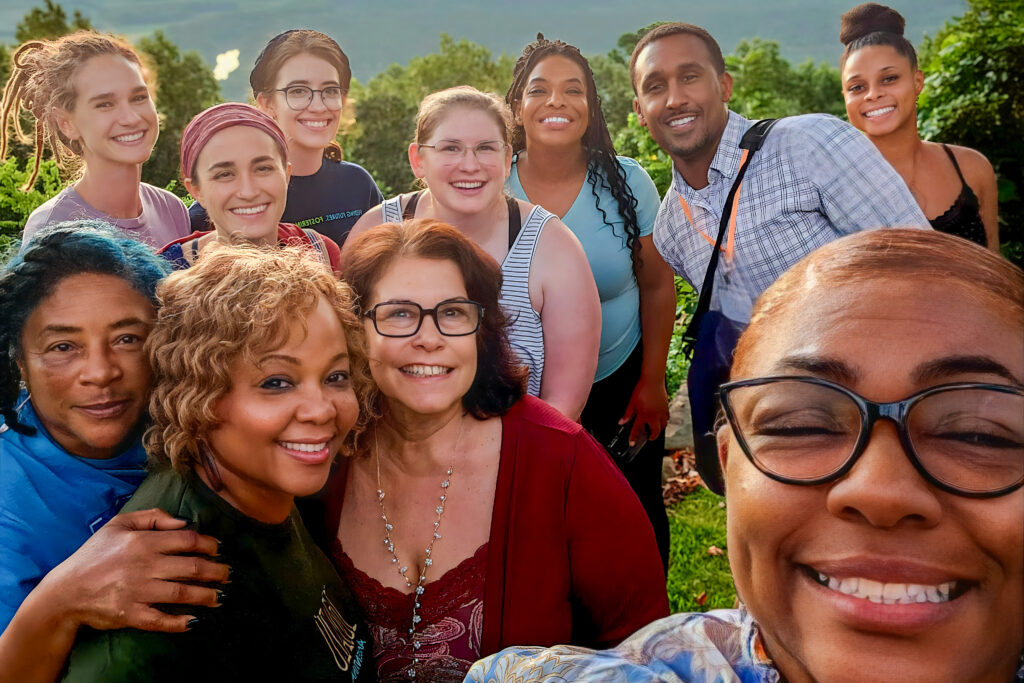
Ninety percent of fellows said they felt more confident in their capacity as a food systems leader, 81% of participants sharpened skills relevant to their work, and 85% learned something new that is meaningful to their work. Many fellows shared examples of the practical ways they are now applying what they learned, from developing a grant budget to learning more about permaculture from a new connection that is helping them design a community food forest. What’s more, 100% of fellows reported at the end of their fellowship that they would make changes to their work or take action based on what they learned. Many of the changes will be around a new focus on developing networks and relationships to support their work and speaking up to share their ideas.
Increased collaboration among fellows with tangible, measurable outcomes
Fellows also reported sharing resources and opportunities with one another, introducing other fellows to their own networks, and offering general support and solidarity to one another. Several also collaborated on projects or proposals together. As an example, one of the fellows established a GroupMe channel to keep in touch with others, which has evolved into a dynamic conversation with folks sharing news about events, meeting up at conferences, and asking for support from their peers. This reflection, by Amber Kennon, shows the potential for collaboration going forward:
“The 2024 Arkansas Food Systems Fellowship was a growing and stretching experience and was so encouraging. I appreciated the networking opportunity and ability to share experiences with a diverse group of leaders from around the state. I left with an invigorated passion to continue developing my strengths so that I may be a better asset to the food systems community in Arkansas.” − Amber Kennon, founder and chief operating officer, Forward to the Basics, 2024 Arkansas Food Systems Fellow.
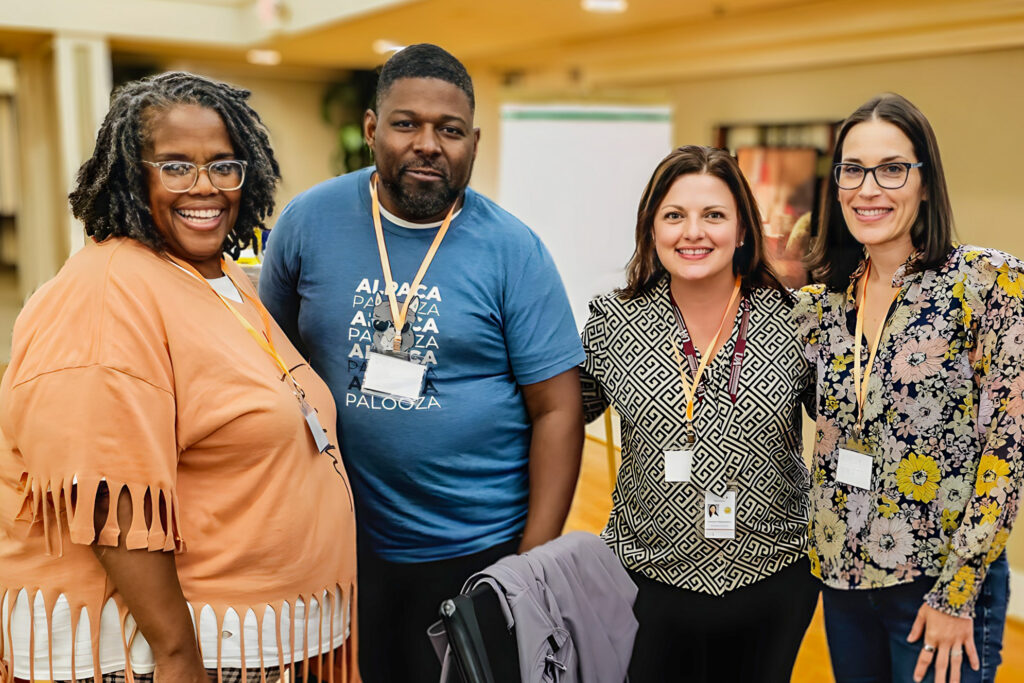
Acknowledgements
Many thanks to the partners that have made this possible, including the fellowship steering committee: Gracie Gonner with Food Bank of the Delta, Amanda Philyaw Perez with UADA Cooperative Extension Service, and Brenda Williams with Communities Unlimited. This fellowship is made possible by the generous support of the Arkansas Community Foundation and Winthrop Rockefeller Foundation.
Related Projects
